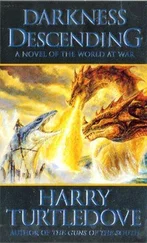“ So Abraham took his only son Isaac, whom he loved more than life itself, two trusty servants, a donkey, and bundles of sticks to make a fire, and began his journey to the land of Moriah where God had told him he would point out the mountain on which he was to sacrifice his son Isaac to God.”
Tollefson paused and wiped at his slack lips with the back of his hand. Little Paul wound his fingers together and grimaced suddenly, like a small ape displaying his teeth.
“Why is God doing this?” he said nervously. “Little Isaac is scared, I bet.”
“He doesn’t know,” Tollefson reminded him.
“Why is God doing this?” the boy said. “Why?”
“Wait and see, it’s like a mystery. Wait until the end of the story. Listen now,” he said, beginning to read in a flat, uninspired monotone. “Can you imagine what pain was in Abraham’s heart when he watched Isaac skipping lightheartedly beside him? How he longed to disobey God?”
“He won’t do it,” Little Paul said under his breath. “Isaac’s daddy won’t do it. Not when he sees how scared he is.”
“And all through the trip,” Tollefson read, “ Isaac kept repeating one question over and over again. ‘Father,’ he said, ‘we are carrying these big bundles of sticks to make a fire, but what will we offer to the Lord our God, since we have forgotten a lamb to sacrifice?’
“But Abraham ignored the question, because he could not tell his son that he was the sacrifice.”
Little Paul stared down at the stark print; for the first time in his life his mind wrestled with the hard words. He wanted to spell out the conclusion to this fearsome puzzle. He hated the story. He hated the book. He hated all books. They said he could read if he wanted to. That he could count. Your tests prove it , they said. You could read if you’d try . But he wouldn’t. Little Paul was not going down that long tunnel. Count maybe.
His head could count. One, two, three, four… on and on you could go. Numbers never stopped. But they would never find out he counted in his head. He just would never say the numbers out loud.
“After many weary days and thirsty miles Isaac and Abraham arrived at the mountain in Moriah, Abraham climbed it with oh so sad a heart, his son beside him. When they arrived at the top they gathered stones and built an altar.”
Little Paul had begun to rock himself on the bed, his arms clasping his knees tightly. He slowly waggled his prison-camp head with its shorn hair and scent of powerful medication from side to side. “No,” he said softly, his lips carefully forming before he sounded the word, “no-o-o, he won’t.”
Tollefson, his ears numbed by the singsong cadences of his own voice, did not hear Little Paul. He had a picture of his own forming behind his eyes. A great golden angel crouched behind a rock on a barren, sandy mountain top. Rescue. Unconsciously, his voice began to rise with his own excitement. “Suddenly, after the last stone was lifted, Abraham seized his son, bound him, placed him on the altar amongst the sticks, and lifted his sharp dagger high, high above his head!”
A sob, a darting hand, and the page was torn. The old man, stunned, caught Little Paul; but the boy’s body wriggled violently upward, his eyes staring, his mouth a pocket of blackness – a diver with bursting lungs breaking the surface. For a moment the boy’s body throbbed with inchoate fury as he strained silently in Tollefson’s grasp, speechless, and full of wonder at what had passed through his mind. Then he screamed: “It’s stupid! It’s stupid! You’re stupid!”
“Paul! Stop it!”
“He killed him!” shouted Little Paul. “The little boy is dead! There’s nothing left of him! He’s all gone! All of him!”
“No,” said Tollefson, and he said it with such assurance and sincerity that the boy went quiet in his hands. “No, he isn’t. The little boy’s alive. There’s an angel, and the angel tells Abraham not to kill Isaac, and there’s a ram in the thicket,” he went on quickly, “and they sacrifice that instead. The little boy… Isaac, he isn’t dead.”
“Yes?”
“Yes,” said Tollefson. Once more on familiar ground, he was recovering his stride and filling with annoyance. “What kind of performance was that?” he asked, handling the book. “You can’t get away with stunts like that. You know, people won’t stand for it. Look at the book.”
Little Paul was not interested in the book. “Why did God tell him to kill the little boy? Was he bad?”
“No, he wasn’t bad. God told Abraham to kill Isaac to see if Abraham loved God enough to obey. And Abraham did love God enough. He loved God so much that he was willing to sacrifice his only son, just as God was willing to sacrifice his only son, Jesus, because He so loved the world and wished to wash it clean of sin, as white as snow, by the saving mercy of His blood.”
Little Paul could see blood. Pails and pails of blood were needed to wash away the sins of the world. He had seen his father catch blood in a pail to make sausage. Blood pumping hot out of a slashed throat in bright jets. Later, when it cooled, it turned black and thick like pudding.
“And because Abraham loved God,” said Tollefson, “he would do anything God asked. No matter how hard.”
“Would you?”
“I’d try very hard. We must always try our hardest to please God. You must too, Paul, because He loves you.”
“Did he love Isaac?”
“Of course. He loves all his children.”
“I don’t like the story.”
“Oh, you didn’t at first,” said Tollefson, “because you didn’t wait for the end. But everything came out all right in the end, didn’t it? That’s the point.”
It didn’t seem the point to Little Paul. It seemed to him that God, being who he was, could have as easily ended the story the other way. That, to Little Paul, seemed the point.
“What do you mean,” said Big Paul, “he wet the bed?”
“He wet the bed, that’s what I mean. And keep your voice down.”
“Jesus, he’s seven years old.”
“It’s the nightmares,” Lydia said. “They all have them at his age. Myrna’s youngest had them for months and then, just like that, they stopped.”
Big Paul felt uneasy. “He never plays with other kids. He’s always with that sick old man. It’s as if he’s afraid to take his eyes off him. No wonder the goddamn kid has nightmares.”
“Maybe if you didn’t talk about Uncle dying in front of Paul, he wouldn’t have bad dreams.”
“Shit.”
“And he spends time with Uncle because of the pigs. He likes to help him.”
“That’s another thing. I told you to tell that kid those pigs weren’t supposed to become pets. That they were going to be butchered. Yesterday I go down to the pens and he shows me how they’ll roll over to have their bellies scratched. Jesus H. Murphy, doesn’t anybody listen to me around here any more?”
“He knows they’ve got to be butchered. I’ve told him and told him.”
“And something else,” Big Paul said, his voice rising with outrage, “the old boy is butchering those pigs. I’m not looking like a shit-head in my kid’s eyes killing those pigs. I didn’t teach them cute tricks!”
“My God, Paul, are you jealous?” Lydia asked, surprised and a little pleased at the notion.
“And last of all,” he yelled, “tell that old son of a bitch to leave the bedroom door open when he’s in there with Little Pauly! Better still, keep the kid out of there!”
“You pig,” she said.
“What are you telling Uncle?” Little Paul whispered, his head twisting at the keyhole in a futile attempt to see more of Tollefson’s bedroom.
Читать дальше












